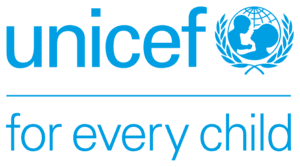Ogun inaugurates one-stop shop for HIV key population
The Ogun State Ministry of Health, in collaboration with APIN Public Health Initiatives, has inaugurated a One-stop Shop to cater for the key population in its HIV response move.
Commissioner for Health, Dr Tomi Coker, at the inauguration on Thursday in Abeokuta, said it was imperative to cater for the key population against stigmatisation from any quarter.
Coker, represented by Special Adviser to the Governor on Health, Dr Tayo Lawal, said that the one-stop shop provided many services to the key population, especially those living with HIV under one roof.
APIN Public Health Initiatives is a leading non-governmental organisation that focusses on prevention, care and treatment services to sex workers, gay, transgender people, among others.
The shop is situated at the premises of the State Agency for the Control of AIDS (SACA) in Abeokuta.
Coker said that the HIV response was in consonance with the key populations like the sex workers, gay, transgender and those who inject drugs, among others.
According to her, these populations are vulnerable and affected by HIV due to risk behaviours, marginalisation and structural factors.
“The HIV response underscores the importance of working with Key Populations (KPs): sex workers, gay, transgender people, people who inject drugs and people in prisons and other enclosed settings.
“Globally, these populations are particularly vulnerable and disproportionately affected by HIV due to risk behaviours, marginalisation and structural factors such as stigmatisation.
“Others are discrimination, violence, human rights violation and criminalisation, which contribute to lack of access to health services.
“With the advent of community testing, more HIV positive people including, KPs are able to know their status,” she said.
Coker said that from 2020 till date, community testing alone had contributed about 39 per cent of new HIV cases, while KPs contributed about 10 per cent of those currently on Anti-retroviral Therapy (ART).
She noted that the shop was effective in reducing barriers to retention, adherence to treatment and provision of comprehensive services that met diverse needs.
The Commissioner thanked APIN for its collaboration in strengthening the public health system, saying that the state was keen on public/private partnership as part of its mandate in achieving universal health coverage.
In his remarks, the Associate Director, Community and Prevention Services, APIN, Dr Olabanjo Ogunsola, said the initiative had partnered with the State Government on public health for five years.
Ogunsola said the one-stop shop has the capacity to provide services on the spot ranging from testing, treatment and laboratory services.
He assured the State Government of APIN’s continued support and partnership, urging it to replicate the shop in other parts of the state.
“As we work together in this journey, we’re assuring the Government of Ogun that we’ll continue to do our part as partners and look forward to more collaboration,” Ogunsola said.
Also, the Executive Secretary of Ogun, SACA, Dr Kehinde Fatungase, said that no fewer than 27,000 people are on treatment, giving the state a 61 per cent success rate.
Fatungase said that 80 per cent mark would be achieved, if the one-stop shop could bridge the gap of the 18,000 people needed to be treated.
“Currently in Ogun, we’re putting 27, 000 people on treatment and that has moved the state to 61 per cent treatment coverage.
“The landmark for treatment coverage is 80 per cent, so that means we’re still lagging behind by 11 per cent.
“But, we’re confident that with partnership like this, in the next one or two years, we’ll cover it up.
“What we need to do is to get about 18,000 people on treatment,” he said.




